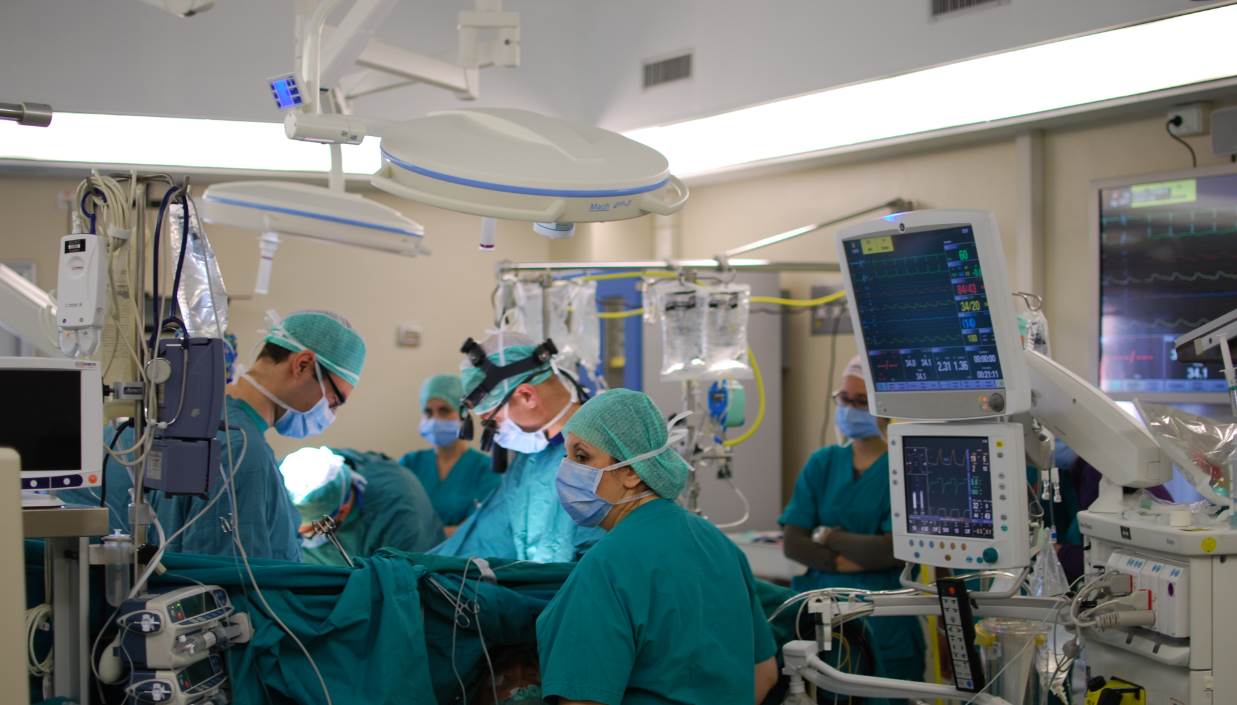A 57-year-old woman from Kentucky had the procedure Sept. 14. She was suffering from biventricular heart failure and had previously undergone cardiac surgery.
The procedure was led by Drs. Mark Slaughter and Siddharth Pahwa.
“Our patient was able to receive this incredible and fascinating device,” Slaughter said. “You all know we like being first.”
Heart disease is the leading cause of death in the United States and accounts for about 22% of deaths in American women, which is nearly on par with male heart disease rates, according to the U.S. Centers of Disease Control and Prevention.
“So somehow, women are markedly underrepresented in getting treatments for advanced heart disease,” Slaughter said. “So, up until now … there were concerns whether or not the device would fit or work in women.”

The device is compact, making it suitable for men and women. It also has similar blood pressure and flow as the human heart, with sensors that can deliver the needed amount of blood to different parts of the body.
Additionally, the device’s implantation — which was sponsored by CARMAT, a French medical device company — replaces the left and right ventricles, or lower chambers, of the heart. Many other assistive devices typically focus on the left ventricle.
The procedure took about 8 hours. A day later, the patient was off the breathing machine. She is now able to sit in a chair and is expected to be able to eat solid food again soon, Slaughter said.
About four weeks ago, Jewish Hospital surgeons also performed the procedure on a male patient, who is “actually doing really well,” Pahwa said.
After the implantation, patients will typically spend 10 days in the intensive care unit and another two to three weeks in the hospital learning how to use the device.
“These patients are really very sick and they’ve been in heart failure, not for days, but for years,” Pahwa said. “And so they have prolonged low cardiac output or less blood flow to all the organs, and it just takes a while for all the organs to completely recover and function back at a normal pace.”
Jewish Hospital is one of four programs in the country authorized to perform the surgery.
The first artificial heart transplants were performed in 1980s, with some of that work coming in Louisville.
The first done in the United States using the Aeson brand was performed on a man at Duke University Medical Center in July. The second procedure, also on a male patient, was performed at Jewish Hospital in August.
The device is being tested as an alternative while patients await a permanent heart transplant.
“We’re not able to transplant most of them,” Pahwa said. “So there is a constant need to innovate and push and find hard, constant substitutes.”
According to courier-journal.com. Source of photo: internet







![[HONORARY PROFESSOR OF RECORD FOR PRACTICE AND EMPIRICAL RESULTS – 2024] RECORD HOLDER CHU BAO QUE (BAC GIANG PROVINCE, VIETNAM)](https://uskings.us/wp-content/uploads/2024/05/IMG_0386-218x150.jpg)
